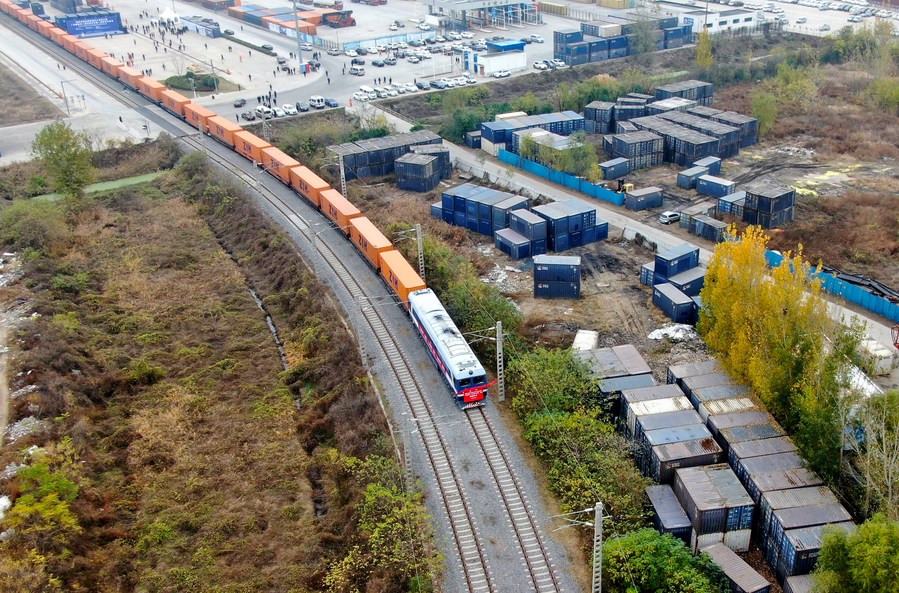Xiconomics: How people-centered philosophy navigates China's high-quality growth, common development


BOOSTING COMMON DEVELOPMENT
From China's growth to the common development of countries worldwide, Xi's economic thought addresses the needs and difficulties of global development through cooperation frameworks such as the Belt and Road Initiative (BRI) and the Global Development Initiative.
"We need to have the vision to dissect these problems; more importantly, we need to have the courage to take actions to address them," Xi said at the 2017 World Economic Forum.
In carrying out foreign economic and trade cooperation, China has taken into full consideration the needs and development interests of its partners.
"China's train is the most beautiful ... We will have the same train soon in our country," said Khamphet Keomixay, a Lao pupil who participated in a sub-forum on people-to-people exchanges during the Second Belt and Road Forum for International Cooperation in Beijing in 2019.
Keomixay's dream came true when the China-Laos Railway was put into operation in 2021. The railway, which connects Kunming, the capital city of southwestern China's Yunnan Province, and Vientiane, the capital of Laos, ushered in a bright prospect for the development of both countries and the Southeast Asia.
From the China-Laos Railway to the China-Pakistan Economic Corridor, from the Chinese-Belarusian industrial park to the Port of Piraeus, China and its partners have jointly built infrastructure projects which have brought substantial benefits to local people.
By the end of February 2022, over 140 countries as well as more than 30 international organizations have signed BRI cooperation documents with China.
The BRI cooperation is "not only aimed at promoting economic integration but also solving social problems in the countries taking part in this initiative, particularly issues like raising the level and quality of people's lives," said Alexander Petrov, a professor of St. Petersburg State University.
























